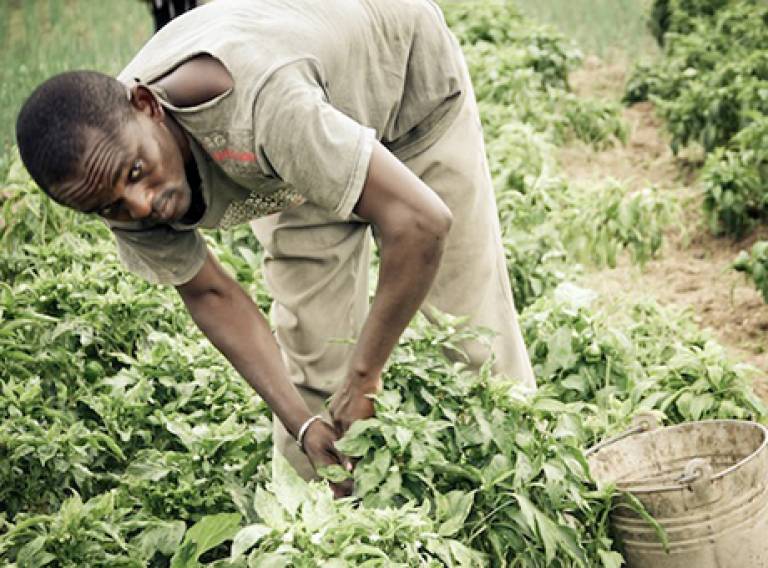Who is feeding African Cities?
3 October 2014
DPU ESD staff and students contribute to a new book on Irrigated urban vegetable production in Ghana, edited by the International Water Management Institute.

A new publication edited by Pay Dreschel and Bernard Keraita from the International Water Management Institute (IWMI) captures the outcomes of the work conducted in Accra as part of the ES3 Sustainable Development in Practice module between 2008 and 2012. The focus of our work during that period was to interrogate the role on urban and periurban agriculture in driving an environmentally just path in Accra Metropolitan Area (AMA).
Chapter 13 by Adriana Allen, Alex Frediani and Matthew Wood-Hill examines how current trends emerging in the interface between the increasing commodification of land and customary and statutory land tenure systems are shaping the actual possibilities for UA to remain a living practice in the face of the current development of the AMA. The book also includes a video entitled Trajectories of Change [YouTube], produced by Etienne von Bertrab in collaboration with other members of the ESD team that provides an overview of who is feeding the city and under what conditions.
About the Book
The book presents a comprehensive overview of market-oriented urban farming in Ghana’s major cities as it is common across Sub-Saharan Africa and summarizes a decade of research by IWMI on irrigated urban and peri-urban vegetable production and safe wastewater irrigation in Ghana and will be launched during the forthcoming Summer School of the BMBF/BMZ funded GlobE UrbanFood+ project in Tamale, Ghana (28th September – 3rd October 2014).
With up to 800,000 city dwellers eating exotic vegetables daily in Ghana’s street restaurants the book highlights not only the important contribution of this informal irrigation sector for farmers and society, but also possible risks and risk perceptions related to the use of polluted water sources. The book contains health risk assessments and outlines options for risk mitigation which were studied in collaboration with the Food and Agriculture Organization of the United Nations (FAO) and the World Health Organization (WHO). Students and lecturers from more than ten universities contributed to this second edition which was produced under the IWMI-led CGIAR Research Program on Water, Land and Ecosystems.
 Close
Close

